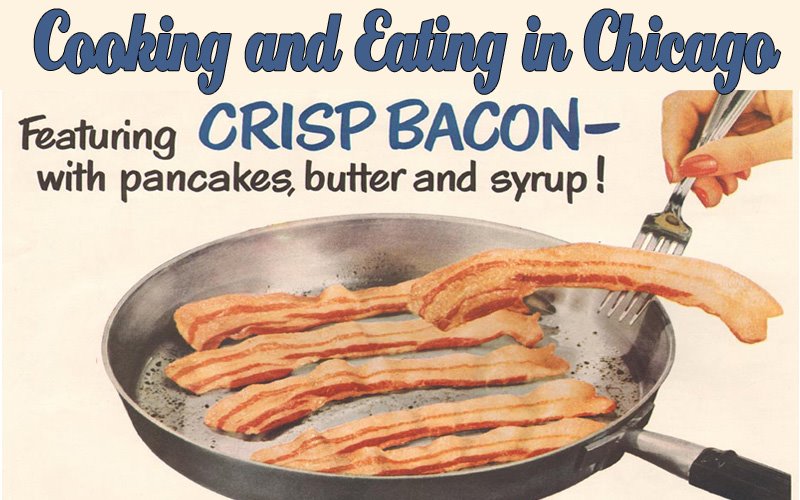
Elizabeth David emerged as a writer of articles about cooking in post-war England in the late 1940's. Her first full-length book, Mediterranean Food was released in 1950, and followed up almost immediately with French Country Cooking
It's hard to imagine in today's 3G-fiber-optic-paced world, but if you really think about what life was like in early 1950's post-war England, David's books must have seemed like a welcome breath of warm, sunny, Mediterranean air. Food was still being rationed then, and a huge number of what we now consider to be staples (eggplant and olive oil, for instance) were either unobtainable or unfamiliar to the average British cook. English cooking was largely very drab and bland, with a lot of roasts, flour-thickened sauces, and overcooked mushy vegetables.
David's food writing was borne out of her travels, both before and during the war. She studied at the Sorbonne in Paris as a young woman and left England in 1939 to become an actress. When WWII started in Europe, she ended up fleeing from one exotic locale to the next, spending time in Antibes, Corsica, Italy, the Greek island of Syros, Egypt, and India.
By the time the war ended and she returned to England, she had seen (and eaten) all over the world. She had cultivated a strong appreciation for the food of the Mediterranean, and this is what she chose to write about. In a time where staples like milk, butter, and beef were in short supply, David was writing about exotics like saffron, eel, capers, and fennel; ingredients that most Brits had never even heard of. For many, cooped up for years due to the war, these books must've read like escapist fantasy.
The books, of course, were hugely successful, and David went on to write ten or so, mostly focused on the food of provincial France and Italy (although her book English Bread and Yeast Cookery is also a classic).
I found this book for three bucks at a used bookstore when I was a budding young cook attending culinary school, thrilled at the prospect of steeping myself in classics like daube de boeuf and truite meunière. It appealed to me as a nice introduction to French country cooking, and I had heard of David and knew that she was considered a legendary cookbook author. This was an ambitious time for me and I had visions of attempting to cook my way through this book in my spare time.
I don't think I quite managed it. When I took the book down off of my bookshelf, a blue fingertip band-aid fell out from where it had been serving as a page-marker for the last 15 years or so. That should tell you something about my knife-skills at the time, and, since it was wedged in only about a third of the way through the fish chapter, you can also figure out about how successful I was at cooking my way through the book.
The recipes here are solid, and do manage to give a pretty comprehensive assortment of "country" or "peasant-style" dishes from the varied regions of France. But what makes this book really wonderful is what it represents, and that's a cultural shift that was, at the time, on the horizon in post-war England. I'm going to quote extensively here from David's introduction, because I really think it manages to capture and convey the ideas that are at the very heart of this classic.
Although there is not such a profusion of raw materials in England, we still have much greater gastronomic resources than the national cookery would lead one to suppose.
Rationing, the disappearance of servants, and the bad and expensive meals served at restaurants, have led Englishwomen to take a far greater interest in food than was formerly considered polite; and large numbers of people with small farms in the country produce their own home-cured bacon, ham and sausages; personal supervision of the kitchen garden induces a less indifferent attitude to the fate of spring vegetables; those who have churned their own butter, fed their chickens and geese, cherished their fruit trees, skinned and cleaned their own hares, are in no mood to see their effort wasted. Town dwellers, who take trouble over their marketing, chose their meat and fish carefully and keep a good store cupboard, are equally interested in seeing that their care is repaid in good and interesting meals.
It is for such people that I have collected the recipes in this book, most of which derive from French regional and peasant cookery, which, at its best, is the most delicious in the world; cookery which uses raw materials to the greatest advantage without going to the absurd lengths of the complicated and so-called Haute Cuisine.... Good cooking is honest, sincere and simple, and by this I do not mean to imply that you will find in this, or indeed any other book, the secret of turning out first-class food in a few minutes with no trouble. Good food is always a trouble and its preparation should be regarded as a labour of love, and this book is intended for those who actually and positively enjoy the labour involved in entertaining their friends and providing their families with first-class food.
There's so much here to take in. David touches on almost every one of today's major food trends, fads, and cultural shifts--organics, local eating, head-to-tail eating, the emergence of 'foodie' culture, garden-to-table eating, the increase in popularity of urban farmer's markets, seasonality. Somehow I'm surprised there's not a chapter on savory cupcakes or any mention of espuma.
David somehow had the prescience to begin constructing a school of thought that was rejecting the concepts of processed, factory-produced, value-added, canned, frozen, and artificially-preserved food just as this nascent industry was emerging. The post WWII era was typified by a massive industrial change-over. Factories that had geared up to produce goods for the war effort were forced to reconfigure, and began to make cans and canned goods, frozen and processed foods, and nitrogen fertilizers for agriculture. Simultaneously, the exploding advertising industry was employed to create newer and ever-increasing markets for these new products.
This, in large part, is how we got where we are today, with a huge portion of our society not knowing how to cook or even take apart raw ingredients--think about it, how many people do you know that are comfortable cutting up a chicken? Ads convinced cooks that canned or frozen vegetables were superior to fresh ones, that eating any fruit at any time of year is a God-given right, and that cooking was a "chore" or "drudgery"--something to be avoided at all costs, or, at least, something to try and spend as little time and energy as possible doing.
Subsequent food industry "innovations" along with PR and ad campaigns have brought about the boneless/skinless phenomenon, the hormoneing and antibiotic-ization of all meat-providing animals, the de-fatting of industrially-raised pork and eggs, the ubiquitous use of high-fructose corn syrup, and scores of other Really Bad Ideas that were driven by the food and agriculture industries' desire to make more and more money without any concern for the quality of the products, the effects their actions would have on the health of the people eating the products or the environment in which they were produced, or for the implicit and explicit messages being sent to our society about the value and importance we place on feeding our stomachs and our souls day in and day out, throughout the lives of multiple generations of people.
We're learning now, of course. Many of the ideas David espoused back in the early 50's are now becoming fashionable among foodies and then beginning to wind their way into the popular culture. But we still have a ways to go, and it's an uphill climb because these concepts are working against food-industry ideals that have been firmly entrenched for the last 40+ years and that have huge money and lobbying power with which to push back.
All this could've been avoided if we'd have all read our Elizabeth David, and tried to emulate her and her wonderful celebratory attitude towards food and cooking. David, of course, was mostly unaware of all the political stuff, and was just concerned with eating and living well. Which is, if you think about it, the very heart of the matter, from a personal, political, and societal standpoint. Cooking and eating (along with writing about it) is a political act--regardless of whether one is aware of it.












No comments:
Post a Comment